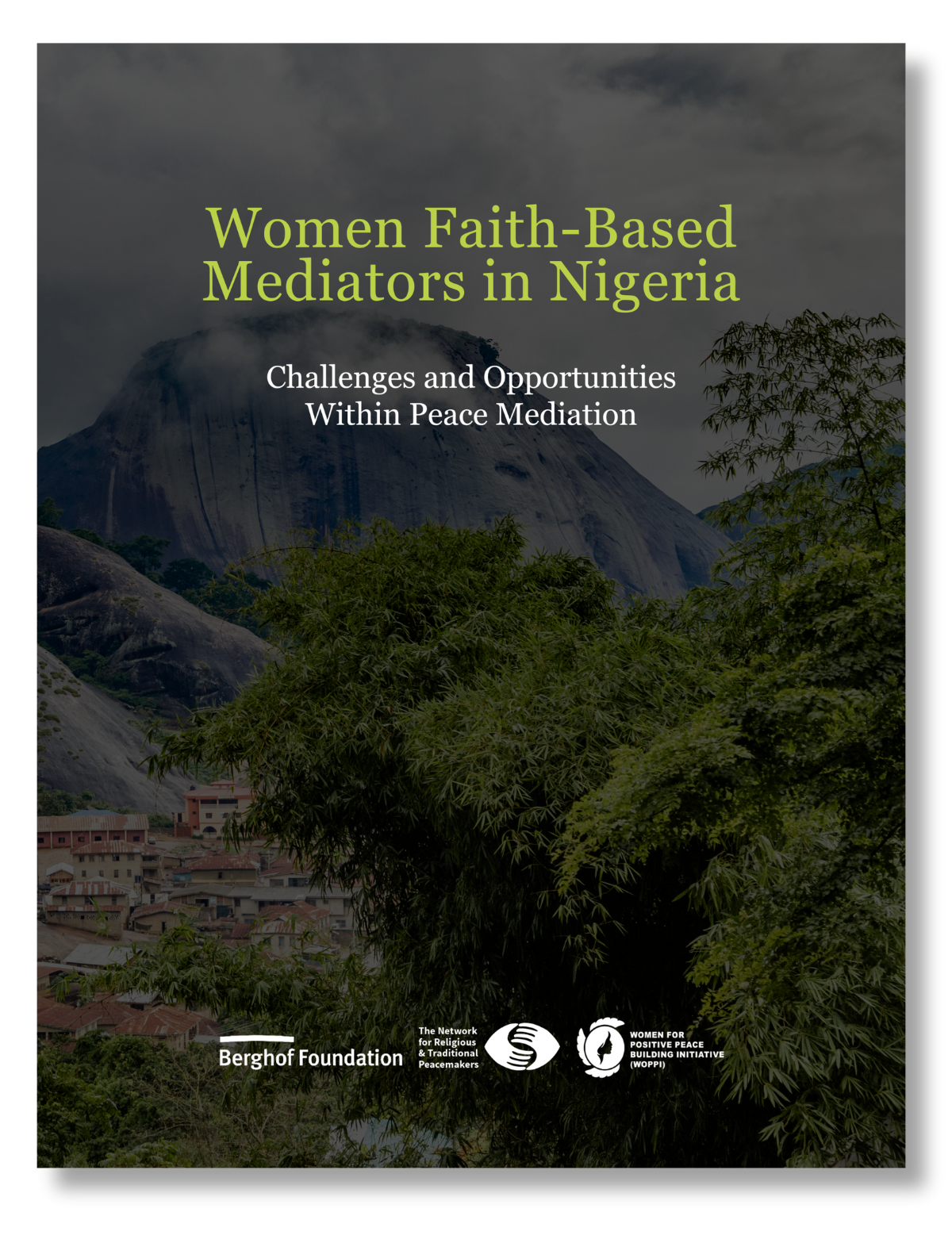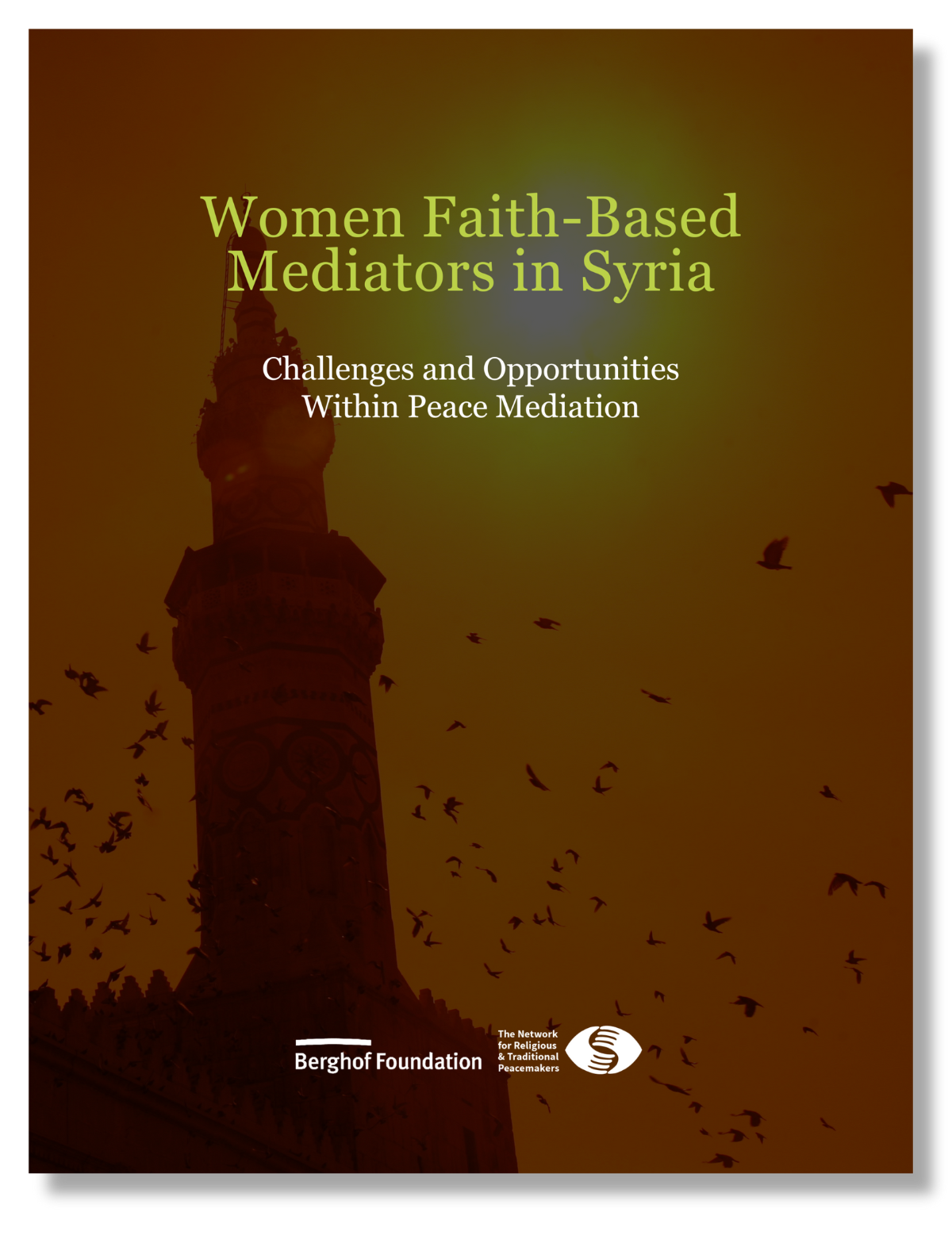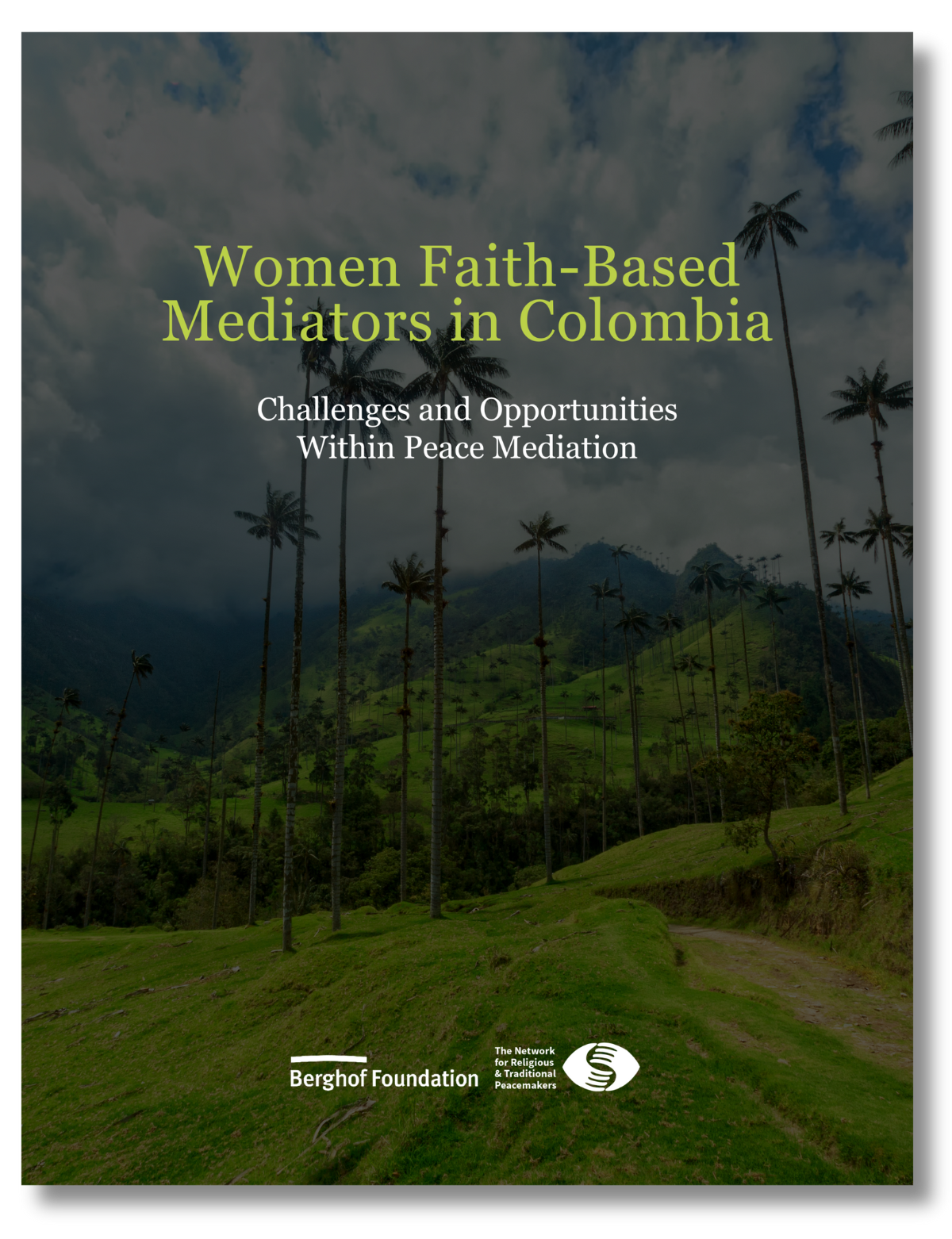Introducing the Women Faith-Based Mediators Country Case Studies
Under Crossfire: The Courageous Work of Women Faith-Based Mediators to Prevent, Mitigate and Resolve Violent Conflicts
Research | October 2023
Against the background of the increasing complexity of ‘modern’ conflicts and the inadequacy of the global peacemaking system, local resources, instruments, and actors have started to gain more attention and prominence, including the role of Women Faith-Based Mediators (WFBMs).
New case studies supported by the Network for Religious and Traditional Peacemakers and the Berghof Foundation give visibility to these brave women and young women, their daily struggles and their unmatched courage and perseverance. Drawing on extensive case studies from Colombia, Nigeria, Syria, Cameroon, Iraq, and Kenya, complemented by interviews with individual WFBMs from Israel, Uganda, Yemen, and Aceh, these studies try to unearth the potential of WFBMs for peacemaking, their motivations, their strategies to overcome societal and religious boundaries, their areas of operation and their achievements in the cessation and prevention of violence.
By virtue of their role as respected traditional and religious leaders in the community, WFBMs get involved to raise topics of very strong concern for the community towards armed groups, military, and government stakeholders. Other WFBMs are well trusted in their community because they serve the community in other respects, such as humanitarian aid and community work.
Faith and religion are constitutive for the motivation of WFBMs, and it gives them courage, resilience, hope, and persistence. WFBMs use faith-based references and knowledge for leveraging their processes, creating entry points, and building trust. Faith gives them strength and confidence to serve as mediators and negotiators in highly complex situations. Religious literacy stands out as the most essential ingredient for their effectiveness.
Relevant stories and lived experiences of individual WFBMs from different parts of the world build the foundation of the study to understand how faith and being a woman or young woman impact the effectiveness of peace mediation and negotiation processes at all tracks.
However, the potential of WFBMs is not sufficiently utilized due to prevailing patriarchal culture in religious contexts, lack of safety and security and lack of funding.. Society will only embrace the leadership and participation of WFBMs within peace mediation processes if civil society actors, especially religious authorities and institutions,acknowledge, recognize, and promote their role. The acceptance of society is imperative to have tangible impact on the ground.
Delve into the research to learn more on how WBFMs share similarities with the way insider women mediators generally operate in conflict contexts, as well as how they stand out exposing distinct features and the concomitant risks, hurdles, entry points and strategies within their peace mediation work. Click here to read the case studies.






